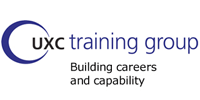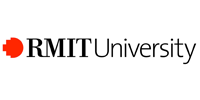Project management education today
A vox pop of educators on the gaps between education and professional project management.
 Neil Hockey
Neil Hockey
Learning & Development Manager at ANZ Australia
What are the gaps between the project management profession and education?
- Improving delivery channels for project management learning (beyond e-learning), incorporating modular learning and just-in-time delivery.
- Providing consistent project management skills training globally, especially for organisations like ANZ, which has a strong regional presence.
- Focusing on complementary and soft skills that make good project managers great, for example leadership skills, legal knowledge, and change management.
- Leveraging the networks that project management learning provides to create coaching and mentoring support that helps embed learning and transform knowledge to performance.
What can industry do to close the gaps?
Partner with education providers to support these actions. We have a responsibility to enunciate the need, and share success stories and pain points so the learning helps to solve real issues and improve performance.
What can educators do to close the gaps?
Build global alliances to support the consistent skills delivery across multiple geographies, cultures and languages, work with industry to deliver learning with more flexible options, and bundle complementary and soft skills training to make them more visible.
What are some of the key challenges?
To successfully deliver projects in a dynamic environment and build the networks and relationships between education providers and industry.
What is the desired outcome of closing the gaps?
To further enhance our project managers’ skills, provide clear career path support, deliver globally consistent skills, and make our project managers more successful to make the organisation more successful.
 Lynn Nortje
Lynn Nortje
Business Director at UXC Training Group
What are the gaps between the project management profession and education?
The gap between the theory and the practice. It’s not a new gap, but the struggle is how do we take our guys out of the classroom and put them into the real world?
What can industry do to close the gaps?
Industry tends to create the gaps by putting the wrong people in the role in the first place. They need to understand what the role of a project manager actually is and the skills that are required. It’s not just a five-day course: that’s just the first part, then there are the soft skills.
What can educators do to close the gaps?
Education has to change. The key message for educators is flexibility; yes, you have a syllabus you have to address, but bring in real examples for the audience you have and feed that into the learning so it’s something they can actually use. You have to give people experiential learning to reduce the gap.
What are some of the key challenges?
People go on a course but Rome is burning and they can’t focus on the course. It’s like starting a project without the business case and then retrofitting it.
Organisations like to see that they’re investing money in the right place so as educators we have to stop looking at it as a piece of paper and as building up skills and capability in an individual.
What is the desired outcome of closing the gaps?
Understanding from the organisation that it’s a learning process so they can continue to support these project managers. They should look at us like a partner rather than as a training provider to take them through that journey.
 Dr Jose Roberto Guevara
Dr Jose Roberto Guevara
Senior Lecturer, Global Studies, Social Science & Planning, RMIT University
What are the gaps between the project management profession and education?
Some of the students could not label what they did in terms of scoping, scheduling, prioritising, and allocating resources, being conscious that they were actually managing a project, and being able to communicate that to somebody in a professional context.
What can industry do to close the gaps?
Things are best learnt from experience and the only way you can do that is if you have industry partners who can give students little real-world projects. It does take time, so it needs somebody from industry who has skills as a mentor.
What can educators do to close the gaps?
I have to look at what industry can learn from the students as well, it has to be seen as a reciprocal relationship.
What are some of the key challenges?
There are some cultural issues. I have students from Japan who have the view that employers want you to be intelligent, but they also want to be able to train you in their way and so the idea of internships is not as important.
Also a challenge is getting across that project management is a set of skills that can be applied anywhere, contextualised, and getting them to understand the use of soft skills.
What is the desired outcome of closing the gaps?
- Preparing students to be life-wide learners.
- Giving students a language where they can talk to other people about projects.
- Developing learning partnerships: it’s better when people can see knowledge in its context and it’s not just coming from the teacher or the institution.

